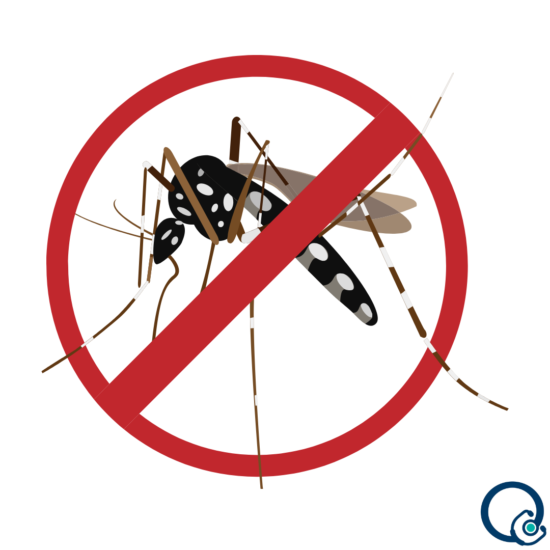Malaria
What is Malaria and How Can I Prevent it?
Protection and Prophylaxis
Malaria
What is Malaria?
Malaria is a life-threating disease caused by parasites which are spread to humans through the bites of infected mosquitos and the release of malaria sporozites. The sporozite then travels to the liver invading liver cells. Once matured in the liver, the mature hepatic schizont ruptures and releases red blood cell invading merozoites into the blood stream. Malaria is mainly found in tropical countries. It is preventable and curable. The most common early malaria symptoms are fever, chills and headache. These usually start within 10-15 days of being bitten by an infected mosquito.

How Common is Malaria?
While the disease is uncommon in temperate climates, malaria is still common in tropical and subtropical countries. Each year nearly 290 million people are infected with malaria, and more than 400,000 people die of the disease.
The greatest risk factor for developing malaria is to live in or to visit areas where the disease is common. These include the tropical and subtropical regions of:
- Sub-Saharan Africa
- South and Southeast Asia
- Pacific Islands
- Central America and northern South America
The degree of risk depends on local malaria control, seasonal changes in malaria rates and the precautions you take to prevent mosquito bites.
Risks of severe disease – People at increased risk of serious disease include:
- Young children and infants
- Older adults
- Travelers coming from areas with no malaria
- Pregnant women and their unborn children
What are the Symptoms of Malaria?
Signs and symptoms of malaria may include:
- Fever
- Chills
- General feeling of discomfort
- Headache
- Nausea and vomiting
- Diarrhoea
- Abdominal pain
- Muscle or joint pain
- Fatigue
- Rapid breathing
- Rapid heart rate
- Cough
Some people who have malaria experience cycles of malaria “attacks.” An attack usually starts with shivering and chills, followed by a high fever, followed by sweating and a return to normal temperature.
Malaria signs and symptoms typically begin within a few weeks after being bitten by an infected mosquito. However, some types of malaria parasites can lie dormant in your body for up to a year.
How Can I Prevent Malaria?
If you are traveling to an area where malaria is common, take steps to avoid mosquito bites. Mosquitoes are most active between dusk and dawn. To protect yourself from mosquito bites, you should:
- Cover your skin. Wear pants and long-sleeved shirts. Tuck in your shirt, and tuck pant legs into socks.
- Apply insect repellent to skin. Use an insect repellent registered on any exposed skin.
- Apply repellent to clothing. Sprays containing permethrin are safe to apply to clothing.
- Sleep under a net. Bed nets, particularly those treated with insecticides, such as permethrin, help prevent mosquito bites while you sleep.
- Sleep in an air-conditioned room if possible.
- Take Preventative Medicine Prescribed by QuickDoc
What are Anti-Malarials?
QuickDoc offers prescriptions for anti-malarial medications that are used for the treatment and prevention of malarial infection. Each anti-malarial medication differs in its structure, working uniquely to kill the parasite. Malaria medication isn’t 100% effective in preventing the disease and the medication should be used with other preventative methods such as wearing insect repellent, wearing long clothing, having accommodation with air conditioning and sleeping in an area with a net and bed treatments.
What Anti-Malarials do QuickDoc prescribe?
QuickDoc offers prescriptions for anti-malarial medications that are used for the treatment and prevention of malarial infection. We offer prescriptions for Malarone and Doxycycline, depending on your need.
What is Malarone?
MALARONE contains two medicines, Atovaquone and Proguanil. It is used to prevent and treat malaria.
How do Malarone tablets work?
MALARONE works by interfering with the growth of parasites in the red blood cells of the human body. As all malaria symptoms are caused by blood stage parasites, malarone targets this stage of the parasite lifecycle.
What is Doxycycline?
DOXYCYCLINE is an antibiotic from a family called tetracyclines. It can be used to prevent contracting malaria. It is thought to kill malaria plasmodium parasites by blocking protein translation in the essential apicoplast organelle (in the Liver phase).
When Should I See a Doctor?
Talk to your doctor if you experience a fever while living in or after traveling to a high-risk malaria region. If you have severe symptoms, seek emergency medical attention.

